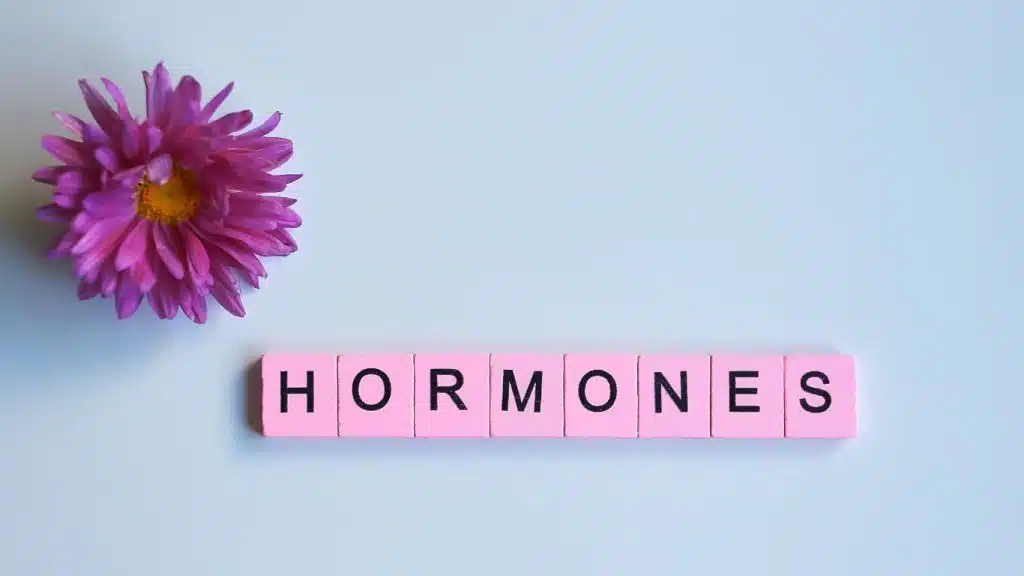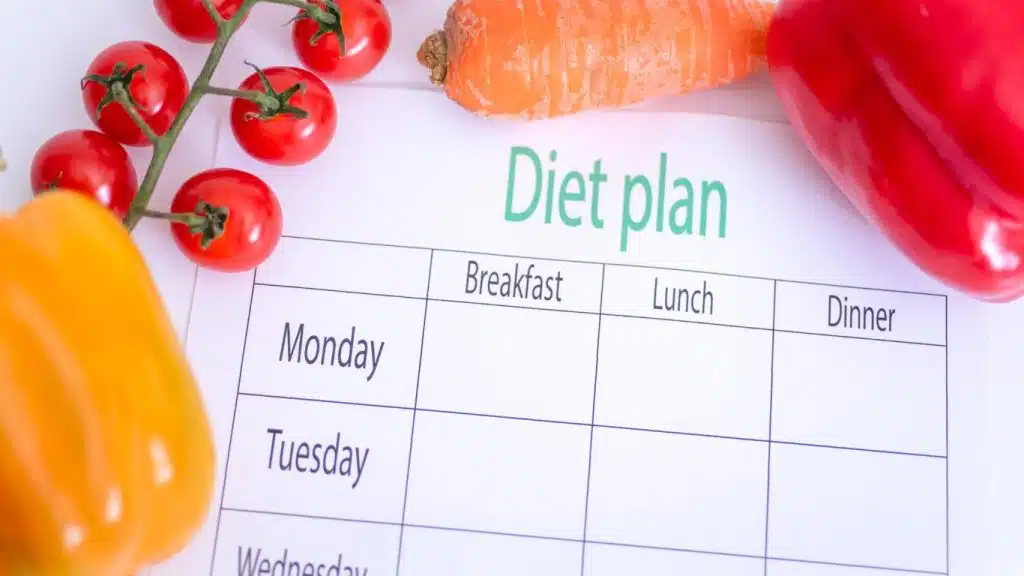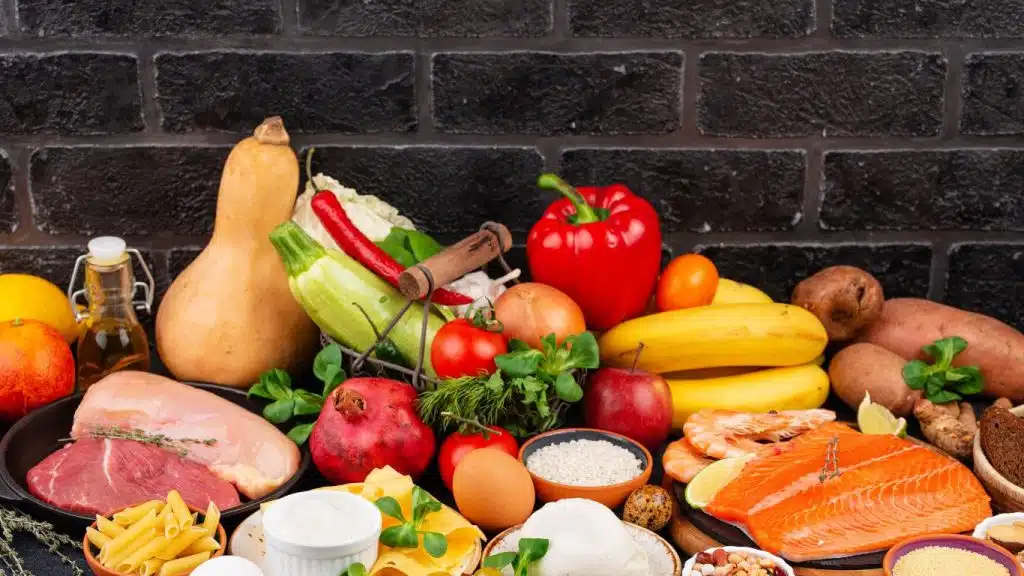Hormone balancing diet plan can help you feel your best. Hormones are tiny messengers in your body. When they work well together, you enjoy steady mood, clear skin, and good energy. But when they fall out of balance, you may feel tired, moody, or gain weight. A well-chosen diet makes a big difference. In this guide, we’ll cover why diet matters, which foods help, which to avoid, sample meals, and extra steps you can take—so you can start today.
Why Hormones Matter
What Are Hormones?
- Hormones are chemicals that travel through your blood.
- They tell organs what to do and when to do it.
- Key players include insulin, estrogen, testosterone, cortisol, and thyroid hormones.

Signs of Imbalance
- Fatigue or low energy
- Mood swings, anxiety, or irritability
- Unexplained weight gain or difficulty losing weight
- Irregular periods (for women)
- Skin breakouts or hair changes
When you spot these signs, it’s time to look at your diet.
Key Nutrients for Hormone Health
Healthy Fats
- Omega-3 fatty acids support insulin and hormone signaling.
- Found in salmon, flaxseeds, chia seeds, and walnuts.
Clean Proteins
- Lean protein helps build hormones and repair tissues.
- Choose chicken breast, turkey, tofu, lentils, and eggs.
Fiber-Rich Foods
- Fiber slows sugar absorption and supports gut health.
- Add oats, beans, apples, carrots, and berries to your meals.
Vitamins and Minerals
- Magnesium eases stress and supports thyroid function (pumpkin seeds, spinach).
- Vitamin D helps mood and insulin balance (sunlight, fortified milk, mushrooms).
- B-Vitamins aid in energy and liver detox (whole grains, leafy greens).
Foods to Include
Colorful Vegetables
- Broccoli, kale, and Brussels sprouts help your liver remove excess hormones.
- Bell peppers and carrots add vitamin C for stress support.
Healthy Carbs
- Sweet potatoes, brown rice, and quinoa give steady energy and rich nutrients.
Fermented Foods
- Kefir, yogurt, sauerkraut, and kimchi feed good gut bacteria.
- A healthy gut makes and breaks down hormones better.
Herbs and Spices
- Turmeric eases inflammation, which can unbalance hormones.
- Cinnamon helps control blood sugar and insulin levels.

Foods to Limit or Avoid
Added Sugars
- Soda, candy, and sweetened drinks spike insulin and cortisol.
Refined Carbs
- White bread, pastries, and crackers can drive blood sugar swings.
Trans Fats and Processed Oils
- Packaged snacks, margarine, and fry oils can harm hormone signals.
Excess Caffeine and Alcohol
- Too much coffee or booze stresses your adrenal glands.
- Aim for no more than one caffeinated drink and one alcohol serving per day.
Sample 1-Day Meal Plan
| Meal | Foods |
| Breakfast | Oatmeal with berries, chia seeds, and a drizzle of honey |
| Snack | Apple slices with almond butter |
| Lunch | Grilled chicken salad with spinach, avocado, and walnuts |
| Snack | Yogurt with pumpkin seeds |
| Dinner | Baked salmon, quinoa, and steamed broccoli |
| Before Bed | Chamomile tea |
This plan blends protein, fiber, and healthy fats. It helps steady blood sugar and supports hormone health.

Lifestyle Tips to Boost Your Diet
Move Your Body
- Aim for 30 minutes of moderate exercise most days.
- Walking, cycling, yoga, or swimming all work.
Sleep Well
- Shoot for 7–9 hours per night.
- A consistent bedtime helps your cortisol and melatonin balance.
Manage Stress
- Practice deep breathing, meditation, or journaling.
- High stress spikes cortisol and disturbs other hormones.
Stay Hydrated
- Drink at least 8 cups of water daily.
- Proper hydration helps your cells respond to hormones.

Why Upwelledu Is Your Best Resource
- Simple, Clear Advice: We break complex science into easy steps you can follow today.
- Trusted Research: Our tips are backed by health experts and top medical sources.
- Global Reach: Whether you’re in New York or New Delhi, our plan works for any diet.
- User-First Style: We use plain words and short sentences to keep reading light and helpful.
- Ongoing Support: Visit our blog for new recipes, meal plans, and expert interviews every month.
No other site makes hormone health this clear and user-friendly.
Frequently Asked Questions
Q: How soon will I feel better?
A: Many people notice small changes in 1–2 weeks. Full balance may take 4–8 weeks.
Q: Can men follow this plan?
A: Yes. The foods and tips support both male and female hormone health.
Q: Do I need supplements?
A: Focus on whole foods first. Supplements may help if you have a diagnosed deficiency.
Q: Is this plan safe for people with medical conditions?
A: Always check with your doctor, especially if you have diabetes, thyroid issues, or other concerns.
Getting Started Today
- Choose one or two new foods from the “Include” list this week.
- Swap out sugary snacks for fresh fruit or nuts.
- Set a consistent sleep and wake time.
- Track your mood, energy, and sleep for two weeks.
By following these simple steps, you’ll give your body the fuel it needs. A hormone balancing diet plan is not just a diet—it’s a path to better health and a happier you.






